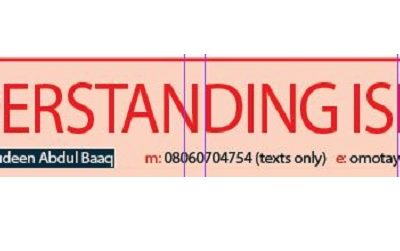
The World Bank has approved an additional $700 million to enhance the implementation and expansion of the Adolescent Girls Initiative for Learning and Empowerment (AGILE), a project to improve girls’ education. This brings the total funding for the project to $1.2 billion. The Minister of Education, Professor Tahir Mamman, SAN, made the announcement during the inauguration of the national steering committee in Abuja.
The AGILE project, initially launched with a $500 million credit facility from the World Bank, has proven successful in seven participating states. More than 2.4 million girls have benefited from the initiative as of the end of September 2023. The additional funding is a testament to the project’s achievements and its importance in promoting girls’ education in Nigeria.

Shubham Chaudhuri, the World Bank’s Country Director for Nigeria, expressed satisfaction with the success of the project in the pilot states. He emphasized the significance of educating the girl-child for Nigeria’s future and commended the program’s inclusive nature, involving communities, traditional and religious leaders.
The AGILE project, supervised by the Federal Ministry of Education, aims to reduce the number of out-of-school children in Nigeria and improve secondary education opportunities for adolescent girls aged between 10 and 20 years. It is a five-year initiative (2020-2025) initially implemented in seven states, with an additional eleven states joining this year.
The national steering committee, chaired by Minister Tahir Mamman, is responsible for monitoring and ensuring the successful implementation of the AGILE program. In his remarks, Prof. Mamman stressed the project’s importance in reducing the high number of out-of-school children in the country and expressed hope for continued success in the additional participating states.
The Minister of State for Education, Dr. Yusuf Sununu, highlighted the project as an investment in educating the girl-child, aligning with Nigeria’s commitment to achieving Sustainable Development Goal 4 for inclusive and equitable quality education.
Amina Haruna, the National Project Coordinator, outlined the project’s components, including creating safe learning spaces, improving infrastructure, and teacher recruitment. She reported impressive achievements, including reaching over 2.4 million beneficiaries, renovating non-functional classrooms, constructing WASH facilities, and delivering teaching and learning materials.
The National Project Steering Committee of AGILE, chaired by the Minister of Education, includes representatives from the Federal Ministries of Finance, Women Affairs, Youth, Health, Human and Disaster Management, Poverty Alleviation, and Commissioners for Education from the 18 participating states.
READ ALSO FROM NIGERIAN TRIBUNE







